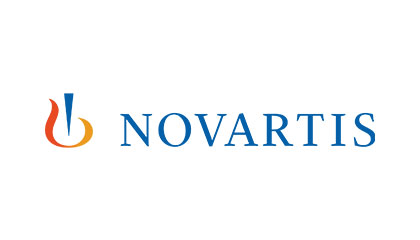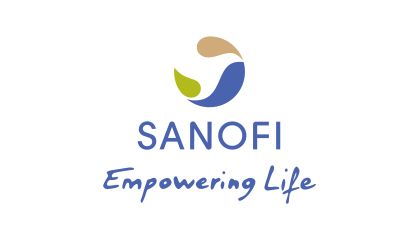Don’t just share best practice – learn from it
From staff shortages to unmanageable caseloads, the challenges facing healthcare professionals working on the frontline of multiple sclerosis services are many and varied.
But with so much innovation and talent in our midst, learning from each other – including those who don’t always shout the loudest – may be the first step to overcoming many of them, said David Martin, chief executive of the MS Trust.
Sharing ways to tackle the postcode lottery of MS care
There’s a well-documented ‘postcode lottery’ of MS care in the UK, where the level of support someone living with the condition receives from the NHS depends largely on where they live.
In the absence of additional Government funding, addressing these variations relies not only on sharing best practice, but acting on what we learn, said David, a self-confessed advocate of the Quality in the Delivery of Services (QuDoS) in MS recognition programme.
“The passion I have seen in MS professionals is amazing, but best practice isn’t being shared as much as it could or should,” said David, who took on the trust’s top job 18 months ago.
“It is talked about a lot, but it’s not really being addressed and that’s contributing to a massive variation in care across the sector. That is why I am really keen to support QuDoS.”
QuDoS showcases an amazing array of innovative ways of working that can boost patient care and help address imbalances, but the key is to learn from them as a community.
“QuDoS is wonderful, because it’s a chance for us to work together to shine a light on the great things we do. But it’s about more than one night in November.
“It’s about what we do in the other 364 days. My challenge to the whole community is to take at least one thing away from the programme and do something with that to improve your service.”
Sharing best practice in order to improve care for everyone living with MS is a core principle of the trust’s blueprint for the future, the MS Forward View.
But the organisation acknowledges there are challenges to adopting new ways of working, with time constraints often being top of the list.
Overworked and overwhelmed
Many teams are simply too overworked to take the time needed to restructure services or institute new processes, said David, who trained as an economist and worked as a BBC journalist and manager before moving into the third sector.
“There is a massive amount of best practice out there. When I go to visit services, I see some wonderful things going on,” he said.
“Then as soon as you step out of the door, you can see people’s heads go down again, and they’re just too busy to share what they do,” he said, adding that many teams were operating at full capacity.
“That doesn’t mean that there aren’t things that can be done differently. When people are too busy, they don’t have a chance to step back, reflect and think about what we can do differently. QuDoS gives us that opportunity.”
From competition to collaboration
Another stumbling block to the effective sharing of best practice is a certain level of competition in the busy sector, with centres sometimes being reluctant to take on ideas they haven’t developed themselves.
“I think at the moment, best practice is often viewed through the lens of who has the highest profile or is held in the highest regard, rather than in terms of offering the best value and effectiveness,” said David.
“The sector is not always good at being receptive to examples of best practice from other centres and teams.”
The QuDoS programme, which is currently accepting nominations in categories including Team of the Year and Innovation in Practice, he hopes, will be an opportunity to hear from new voices.
“We’ve got some brilliant people who are certainly being recognised by the patients, but on the professional level there is not always a great deal of recognition for those who do not have high profiles,” said David.
“I’m hoping we will be able to shine a light on a few of the services that are doing a great job, but maybe don’t shout quite as loudly.”
Shared aims
Ultimately, everyone wants to improve services for people with all forms of MS, no matter where they live in the country. Learning from each other, many believe, is the most effective way of doing that.
“There are so many good things happening out there and, yes, it takes a little time to introduce change. But that change is going to make professionals’ jobs easier and that they can make more of a difference for people with MS.
“Isn’t that why we are all here?”, asked David.
Nomination time
Do you or a colleague have an example of best practice that is making MS care safer, more efficient, or more effective? If you believe the community could learn from it, click here to nominate it to the QuDoS in MS recognition programme.
All shortlisted entries will be invited to a ceremony at the Jurys Inn Hinckley Island Hotel on November 2. The event will be held ahead of the MS Trust annual conference which will start at the same venue the following day.
QuDoS is organised by pharmaphorum in conjunction with the MS Trust. It has been sponsored by Novartis, Biogen and Sanofi Genzyme.
About the interviewee
 David Martin became the CEO of the MS Trust in 2017 where he has prioritised increasing the number of MS nurses, growing fundraising income and giving the national charity a bigger voice in the sector. He has previously worked at the leading disability charity Papworth Trust and at the BBC, after studying Economics at Newcastle University. Away from the office, David is a keen cyclist which saw him biking from London to Amsterdam for the MS Trust when he first joined the charity.
David Martin became the CEO of the MS Trust in 2017 where he has prioritised increasing the number of MS nurses, growing fundraising income and giving the national charity a bigger voice in the sector. He has previously worked at the leading disability charity Papworth Trust and at the BBC, after studying Economics at Newcastle University. Away from the office, David is a keen cyclist which saw him biking from London to Amsterdam for the MS Trust when he first joined the charity.
The gold sponsor is:

The silver sponsors are:


